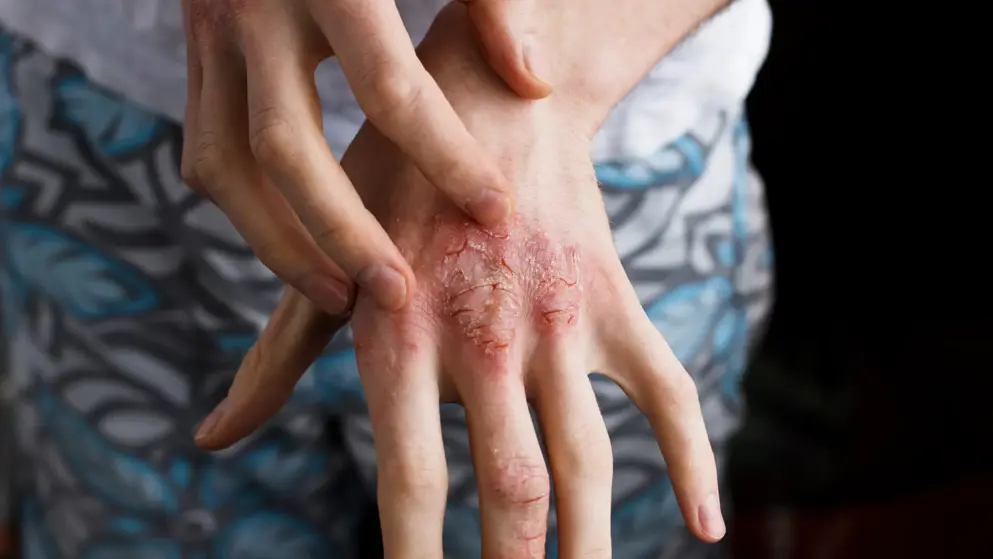
New data show Rinvoq (upadacitinib) demonstrated superiority versus Dupixent (dupilumab) across primary and all secondary endpoints in an open-label head-to-head atopic dermatitis study
AbbVie announced positive topline results from LEVEL UP, an open-label, efficacy assessor-blinded head-to-head Phase IIIb/IV study that evaluated the efficacy and safety of upadacitinib (Rinvoq, 15 mg once daily starting dose and dose-adjusted based on clinical response) versus dupilumab (Dupixent, per its labeled dose) in adults and adolescents (greater than 12 years of age) with moderate-to-severe atopic dermatitis (AD) who had an inadequate response to systemic therapy or when use of those therapies was inadvisable
"Even while receiving conventional treatments, many patients with atopic dermatitis still continue to live with significant itch and inflammatory skin symptoms that can profoundly impact their everyday lives," said Roopal Thakkar, M.D., senior vice president, chief medical officer, global therapeutics, AbbVie. "Results from this study show that patients with moderate-to-severe atopic dermatitis can strive for both little to no itch and clearer skin."
In the LEVEL UP study, upadacitinib showed superior efficacy versus dupilumab in the primary endpoint, demonstrating that a significantly higher proportion of patients simultaneously achieved both a 90% or greater reduction in Eczema Area and Severity Index (EASI 90) and a Worst Pruritus Numerical Rating Scale of 0 or 1 (WP-NRS 0/1) at Week 16 [(19.9% vs 8.9% for upadacitinib and dupilumab respectively, p<0.0001)].
The EASI is a clinically validated measure used to assess the severity and extent of atopic dermatitis, while the WP-NRS is an assessment tool that patients use to report the intensity of their pruritus daily (with 0 being 'no itch' and 10 being the 'worst imaginable itch').
Upadacitinib also showed superiority versus dupilumab for all ranked secondary endpoints, including the rapid onset of achieving near complete skin clearance and no to little itch. For the first two ranked secondary endpoints, the study showed that a significantly higher proportion of patients treated with upadacitinib: i. Achieved EASI 90 at Week 16 [(40.8% vs 22.5%, p<0.0001)]. ii. achieved a wp-nrs of 0 1 at week 16 [(30.2% vs 15.5%, p><0.0001)]>
The LEVEL UP study is the first head-to-head trial in atopic dermatitis assessing upadacitinib at a starting dose of 15 mg daily versus dupilumab at its labeled dose. Upadacitinib was initiated in adults and adolescents ( greater than 12 years of age, weighing at least 40 kg) at 15 mg once daily (QD) and dose-escalated to 30 mg QD based on clinical response. Dupilumab was initiated at 600 mg, followed by 300 mg every other week (Q2W) in adults and adolescents weighing greater than 60 kg; adolescents weighing less than 60 kg received an initial dose of 400 mg, followed by 200 mg Q2W.
"Too many patients are still not achieving optimal disease control in atopic dermatitis despite taking steps to manage their condition," said Jonathan Silverberg, M.D., Ph.D., MPH, professor of dermatology and director of clinical research at the George Washington University School of Medicine and Health Sciences. "Results from the LEVEL UP study highlight how treatment options such as upadacitinib can achieve high treatment goals in atopic dermatitis with combined measures of EASI 90 and NRS 0/1, not just itch resolution or just skin clearance."
The observed safety profile for upadacitinib in LEVEL UP was consistent with that observed in previous upadacitinib atopic dermatitis clinical studies. No new safety signals were identified during the study period. In Period 1, the most common adverse events (AE) reported were nasopharyngitis for both the upadacitinib and dupilumab group. The rate of serious AEs (0.9%) was the same for both upadacitinib and dupilumab. There was one serious infection reported in the dupilumab group and none in the upadacitinib group. No malignancies, adjudicated major adverse cardiac events, adjudicated venous thromboembolic events (VTEs) or treatment-emergent deaths were reported in either treatment group.

